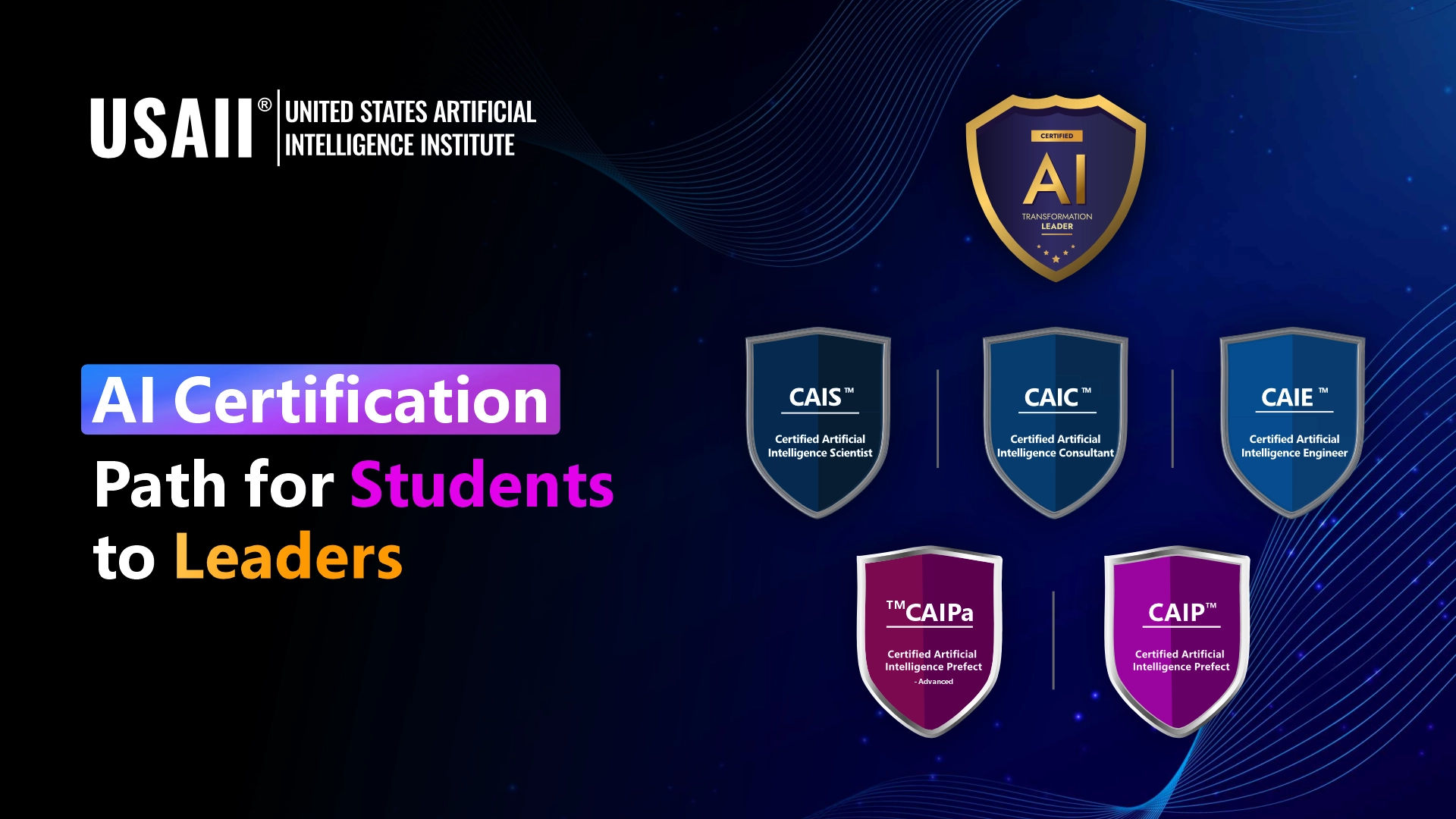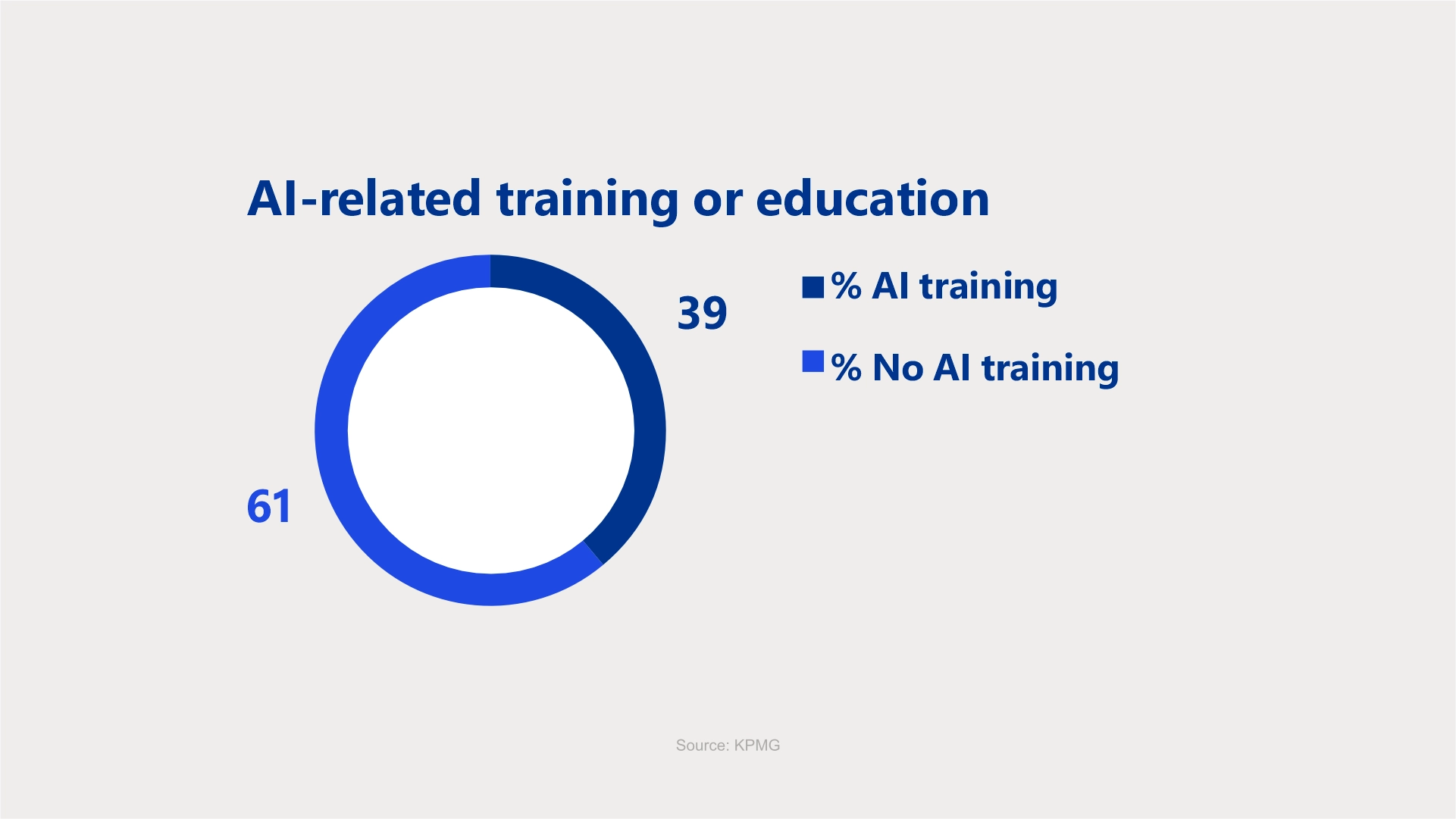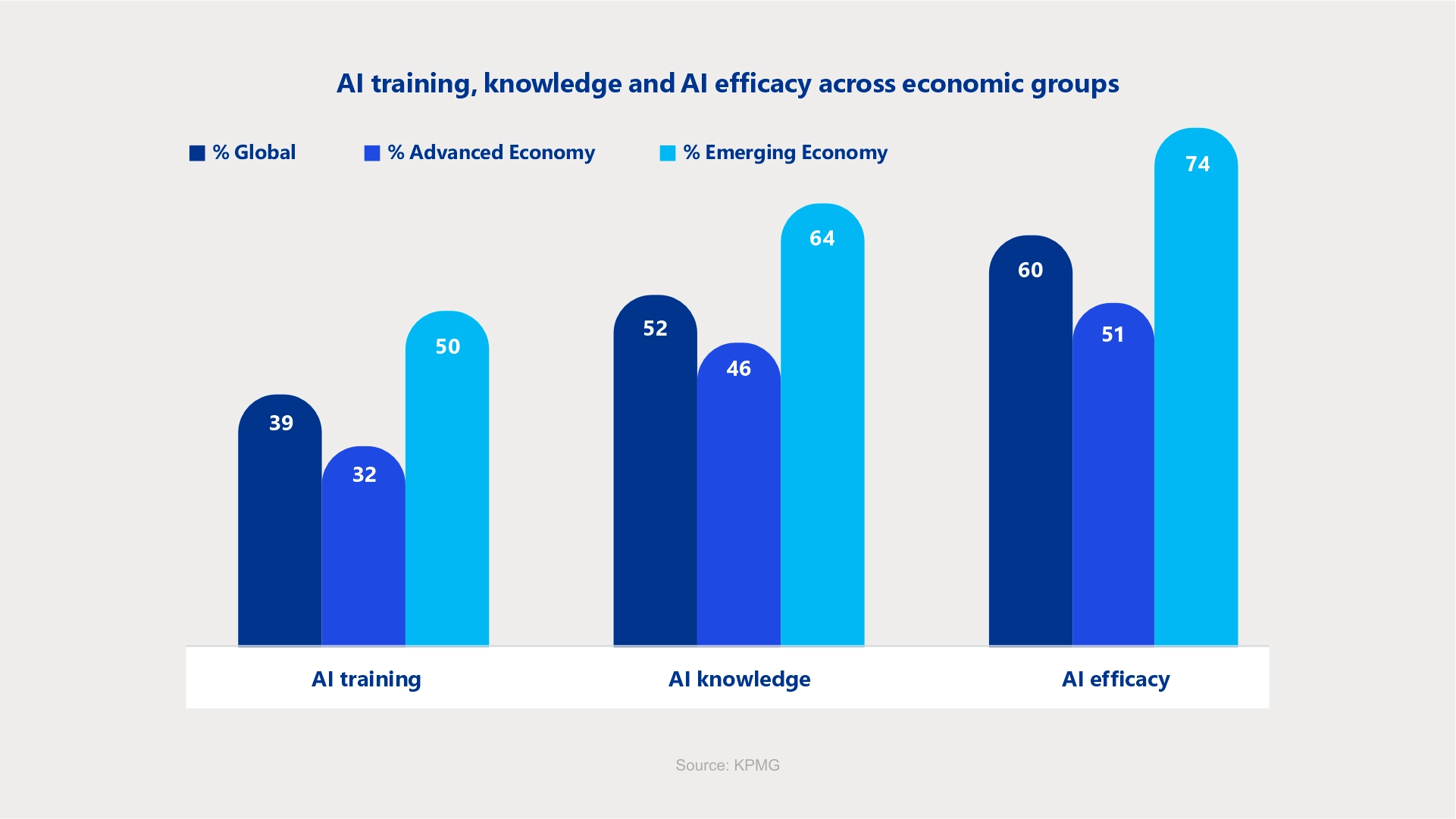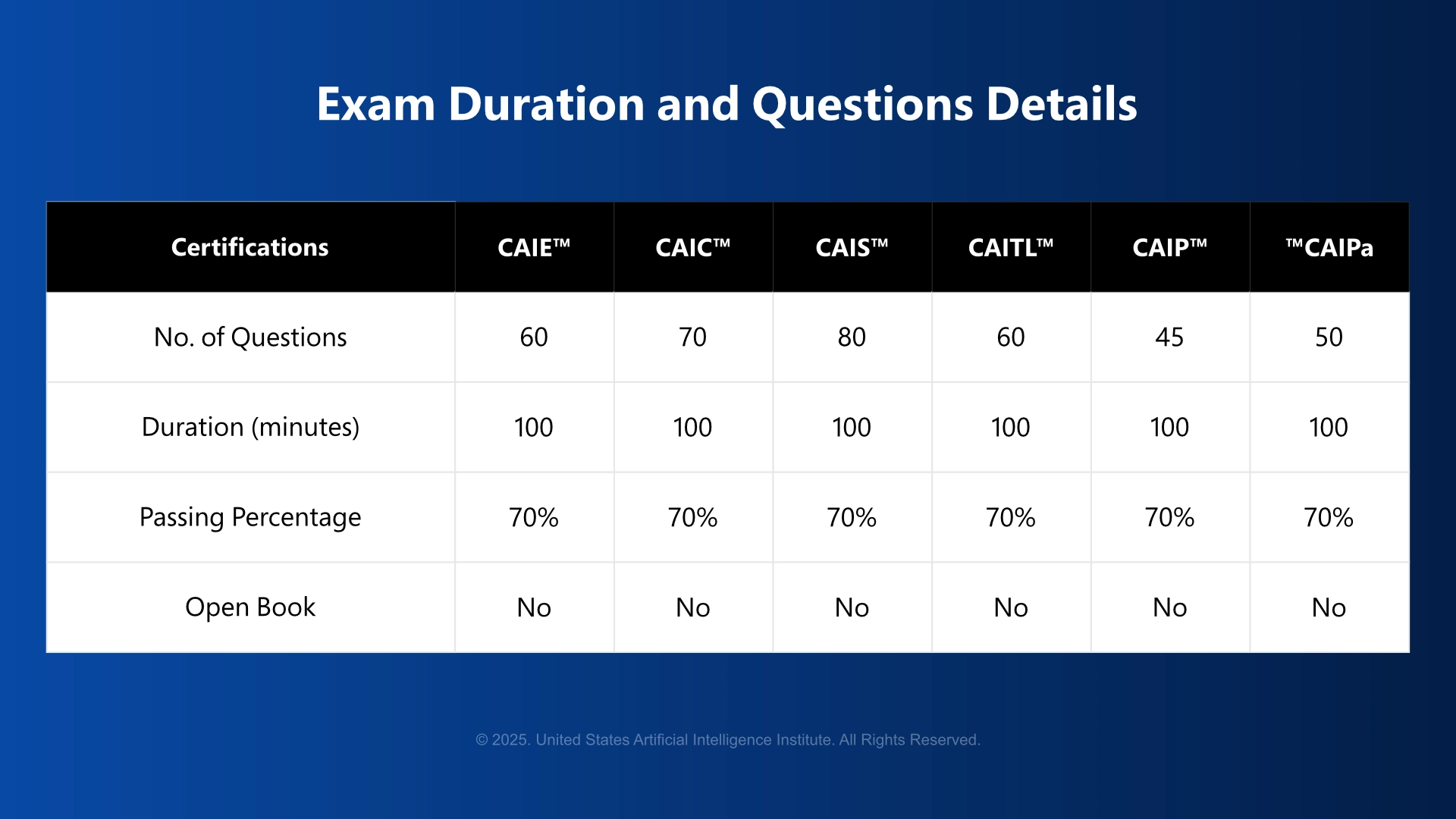
What if there were only one certification that could future-proof your entire career in AI?
Around 92% of businesses are increasing their investment in AI, but only 1% of those companies are true AI-mature companies, as documented by McKinsey & Co in the 2025 report. Subsequently, Pearson reported that just in 2025, the number of professionals pursuing AI and machine learning certification has doubled since 2022. There certainly is a global scramble to reskill and "upskill."
The message is unequivocal: AI is no longer a passing fad; AI is now a fundamental skill set. Whether you are a student, working professional, or leader preparing to implement AI transformation, gaining a certification can help bridge the potential against performance.
This blog post will map out the step-by-step process to find the best AI certifications, learn valuable hands-on AI skills, and get you positioned for opportunities and growth throughout your career in the ever-changing landscape of the job market today.
Why Get an AI Certification?
AI certification credentials enable you to make your skills relevant in a changing employment market. In the new world of automation, machine learning, and data solutions, these top AI certifications help professionals:
Step-by-Step Process to Obtain a Top AI Certification
If you wish to obtain a renowned AI certification and use your abilities with assurance in the real world, here is a path to follow:
Step 1: Choose Your AI Career Path
AI offers diverse career opportunities beyond just coding. Whether you're a technical expert, a business professional, consultant, a beginner, or aiming for a leadership role, there’s a specialization that fits your background and future goals. Here's how to explore your path:
1. Technical Roles
For people with programming or data backgrounds like developers, engineers, or data scientists, this job function focuses on building and training AI systems as follows:
2. Non-Technical & Consultant Roles
Designed for those with no coding experience who want to work alongside AI systems:
3. Strategic & Leadership Roles
Best suited for senior professionals like CXOs, Tech Strategists, Transformation Leaders, aiming to lead AI initiatives:
Step 2: Build a Firm Foundation
AI is no longer just for tech specialists anymore. In today's market, there are many entry points for people with technical, non-technical, or leadership experience. It's best to build the right foundation for what path you decide to take:
1. Technical Track for Engineers, Developers, Data Professionals
If you have a tech background, focus on:
2. Non-Technical and Beginner Friendly Track
Having a coding background is not necessary to begin working in AI. There are a number of beginner-friendly courses available to people from non-technical backgrounds to introduce them to AI concepts and uses. These courses will allow you to:
3. Strategic/Leadership Track for CXOs, Tech Strategists, Transformation Leaders
Organizations are now looking for individuals that have experience leading AI projects. Due to the increased demand for AI leaders, there are many new certification courses pertaining to
The AI ecosystem cannot be more welcoming and diverse in skills sets. Regardless of your degree or background, if you have a solid core, there is an obvious place for you.
Why AI Certifications Matter Now More Than Ever
It is curious that most people using AI tools today have not received any formal training in AI. KPMG’s 2025 Global Study on Trust, Attitudes, and Use of AI found that only 39% of people have received any kind of AI related education, whether through work, courses, or self-directed learning. Nevertheless, three out of five people believe they can be highly effective with AI but many, if not most, admit that they do not fully understand how AI actually works.


The research also indicates a clear distinction between economies. In the emerging economies group, respondents are more likely to have taken AI training, and to feel confident about using AI tools in general than those from advanced economies. For example:
In the emerging economies group, 50% responded that they have taken AI training, compared to only 32% in advanced economies.
74% answered that they felt confident using AI, compared to only 51% in advanced economies.
This data emphasizes an important point. The right AI certification will not only help to reduce the skills gap, but also raise real confidence, and not just perceived ability.
Step 3: Select the AI Certification That Aligns with Your Goals
Choose a certification that matches your academic level, professional experience, and AI career goals. USAII® offers a comprehensive range of vendor-neutral certifications designed for every stage:
For Entry-Level or Aspiring AI Professionals
Certified Artificial Intelligence Engineer (CAIE™): Best for freshers or those shifting careers. Focuses on Python, machine learning, NLP, computer vision, and basic deep learning with hands-on labs and projects.
For Experienced Professionals and Consultants
Certified Artificial Intelligence Consultant (CAIC™): Suited for working professionals. Includes end-to-end AI/ML, model deployment, real-world use cases such as fraud detection, and AI solution design, with no coding.
For Senior Professionals and Strategists
Certified Artificial Intelligence Scientist (CAIS™): Geared for mid-to-senior roles. Covers deep learning, reinforcement learning, GANs, and AI strategy to prepare candidates for more complex data-driven decision-making positions.
For Business Leaders and Executives
Certified AI Transformation Leader (CAITL™): It is the best AI leadership certification created for CXOs, directors, and transformation leaders. It will cover governance, enterprise integration, ethical leadership, AI, and will emphasize leading transformation with AI.
For K–12 Students
The Certified Artificial Intelligence Prefect (CAIP™) is designed for students in grades 9–10 and focuses on foundational concepts such as AI basics, Python basics, building logic, robotics, and real-world AI applications. Building on this, the Certified Artificial Intelligence Prefect—Advanced (CAIPa™) is meant for students in grades 11–12 and explores advanced topics including reinforcement learning, the metaverse, generative AI, and more complex coding challenges.
Step 4: Core Competencies Needed to Excel in AI Certifications
Success depends on the achievement of core competencies. You need the following:
Step 5: How to Get Certified
It's time to enroll in a certification program after you've decided on your preferred AI job path and are comfortable with the fundamentals.
How to Get Certified with USAII®
You can apply to the United States Artificial Intelligence Institute and obtain your AI certification in the following ways:

Step 6: Use Your Certification to Land AI Jobs
Getting an AI course or certifications represents a strong signal to employers that you are validated to tackle real-world problems. After obtaining your certification, you will be able to aim for a combination of jobs depending on your specialization:
If you can combine a top AI certification with a compelling portfolio of projects, GitHub repositories, and LinkedIn endorsements, you can speed up your career growth.
Why USAII® Certifications are a Smart Choice?
Recognised in more than 160 countries its quality, adaptability, and industry relevance, USAII® provides globally recognised AI credentials for a variety of career pathways.
With USAII®, you will gain access to a global AI community, post-certification development, and ethical frameworks that will align with their AI deployment in the real world.
Conclusion
To begin a successful AI career, it must begin with curiosity and then grow and be sustained by ongoing learning. Certifications do more than just validate your skills; they create more opportunities to take on high-impact roles. USAII® has globally recognized programs that consist of organized, structured modules for aspiring AI practitioners at every career level, from student, practitioner, and manager to executive roles in AI transformation.
Are you prepared to future-proof your career with an AI certification? Register today and start your journey with USAII® to become a professional in AI.
Follow us: